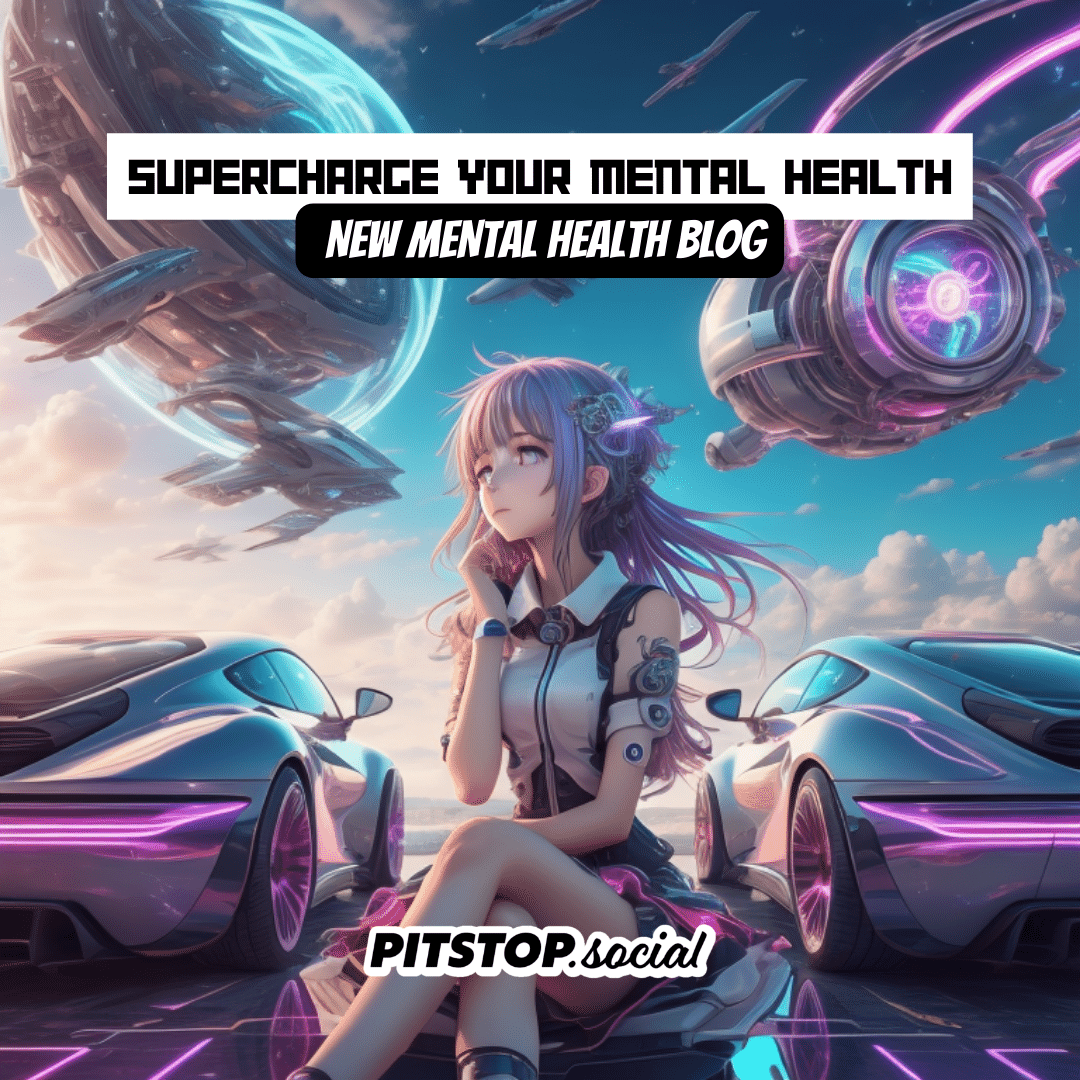
Supercharge Your Mental Health: 10 Effective Tips for Enhanced Well-Being
Share
Supercharge Your Mental Health: 10 Effective Tips for Enhanced Well-Being
Maintaining robust mental health is essential for leading a fulfilling and balanced life. Just as we're encouraged to invest in our physical health, taking proactive steps to nurture our mental well-being is equally crucial. In this informative blog article, we will explore ten evidence-based tips to supercharge your mental health, empowering you to cultivate resilience, happiness, and a positive outlook on life.
1. Prioritise Self-Care:
Self-care is the foundation of good mental health. Take time each day to engage in activities that nourish your mind, body, and soul. This can include anything from practicing mindfulness, journaling, spending time in nature, washing the car, enjoying a hobby, or simply relaxing with a book or your favourite music (10 really good tips on the new Fuel Up Tour T-Shirt design!) Whatever this looks like for you, learn to prioritise self-care without guilt; it is an investment in your overall well-being.
2. Practice Regular Exercise:
Physical activity does wonders for mental health. Regular exercise releases endorphins, the brain's natural feel-good chemicals, which can reduce stress, anxiety, and symptoms of depression. Find activities you enjoy, such as walking, jogging, dancing, yoga, or cycling. You can even get an intense workout from polishing the car. Whatever you choose to do, get your body moving and release those feel good chemicals.
3. Nurture Positive Relationships:
Social connections are essential for mental well-being. Cultivate meaningful relationships with friends, family, and colleagues. Share your thoughts and feelings with trusted individuals, and be there to support others where you can, too. Positive social interactions boost happiness and provide a valuable support system during challenging times. If you're in need of some fresh perspective, have a search for nearby car clubs or other hobbies and interests you might have. You're never too old to make new friends!
4. Limit Stress and Manage Anxiety:
Chronic stress and anxiety can take its toll on mental health. Identify stressors in your life and implement effective stress management techniques such as deep breathing, meditation, progressive muscle relaxation, or engaging in creative outlets. If anxiety becomes overwhelming, seek professional help to develop healthy and sustainable coping strategies. It's not always easy to address the root cause of your problems, but you have the power to create the boundaries on how stressors can impact you day to day. Limit what you can, and find new roads around the things you can't.
5. Get Quality Sleep: (she says, writing this after 2am...)
Sleep is a vital component of mental health. As adults, we need at least 7 hours of restful sleep each night. If you're not familiar with the term "sleep hygiene", then check out The Sleep Foundation. The basics include creating a relaxing bedtime routine and optimising your sleeping environment. The aim is to maintain a consistent sleep schedule, gradually improving the quality of your sleep, and overall, getting a regular recharge your mental batteries. (There will be another PS article dedicated to sleep coming soon!)
6. Practice Gratitude:
Cultivating gratitude has a profound impact on mental well-being. Take a few moments each day to reflect on the things you are grateful for, whether big or small. I find this easiest to do of an evening, before I go to sleep, but most beneficial in the morning, to get me set up for the day. Keeping a gratitude journal can help shift your focus from negativity to appreciation, training yourself into a more positive mindset. Just like we sometimes adopt a negative mindset during challenging experiences, it takes time to gradually develop a positive approach. Be easy on yourself, start small.
7. Engage in Cognitive Activities:
Keeping your mind active and challenged is essential for mental sharpness and resilience. Engage in cognitive activities like puzzles, brain teasers, learning new skills, or playing strategic games. These activities stimulate brain function and contribute to enhanced mental health. There are a tonne of grown-up colouring in books available online and instore... Staying between the lines definitely counts as a cognitive activity on the days where you're not wanting to work those mental muscles too hard.
8. Limit Digital Overload:
How many times per day can you catch yourself scrolling socials and realise you should / could be doing something else? In today's digital age it's becoming essential to set boundaries with technology. Excessive screen time, especially on social media, has been proven to contribute towards feelings of loneliness, anxiety, and inadequacy. Try setting specific time limits for screen usage (there are apps and android widgets available), or define times that you're going to put down your phone and leave it down... Remember to prioritise real-life connections over virtual ones, and that includes self-care > doom-scrolling.
9. Practice Mindful Eating:
Nutrition plays a significant role in mental health. Embrace mindful eating by paying attention to your food choices, eating slowly, and savouring each bite. Incorporate a balanced diet rich in fruits, vegetables, whole grains, lean proteins, and healthy fats. Proper nutrition can have a positive impact on mood and overall well-being. Your car runs best on the premium stuff, try to feed your body with the best basics where you can... and don't forget to stay hydrated!
10. Seek Professional Support:
If you find yourself struggling with persistent mental health issues, don't hesitate to seek professional help. Mental health professionals, such as therapists or counsellors, can offer guidance, support, and evidence-based therapies to address your specific needs. Medication isn't always the only answer, so don't feel like you can't reach out!
Conclusion:
Supercharging your mental health requires a holistic approach that addresses various aspects of your life. Prioritise self-care, engage in regular exercise, nurture positive relationships, manage stress and anxiety, and ensure quality sleep to establish a strong foundation for mental well-being. Practice gratitude, cognitive activities, and mindful eating to cultivate a positive mindset and boost cognitive function. Remember that seeking professional support is a sign of strength, not weakness, and can be a valuable resource in your mental health journey. Embrace these ten tips with dedication, patience, and self-compassion, and witness the transformative effects on your overall mental health and happiness.
Remember, these tips are not a substitute for professional mental health advice or treatment. If you're facing severe mental health challenges, please consult a qualified mental health professional. Your well-being is of utmost importance, and seeking support is an essential step toward a healthier, happier life. Reach out, don't burn out.
Much love,
Clare
